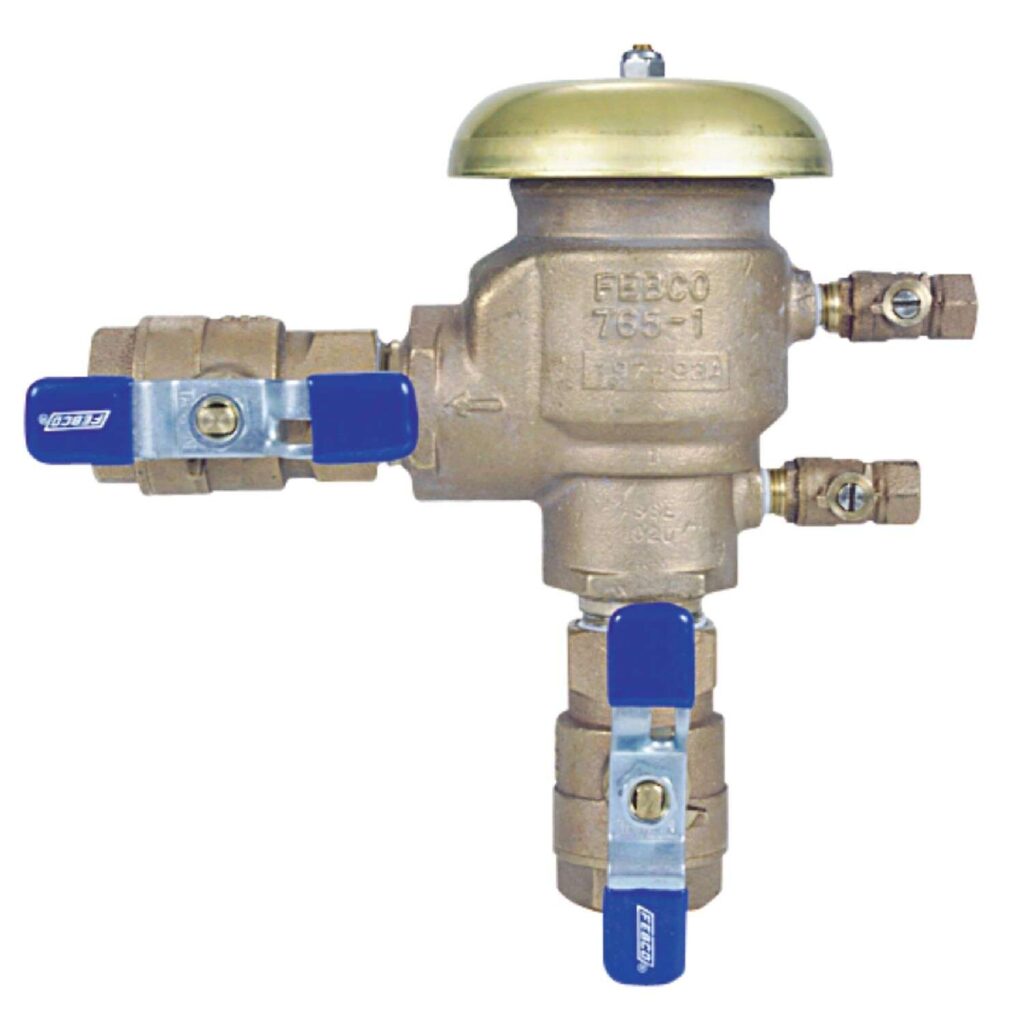
There are multiple parts to your irrigation system, and knowing what they are will ensure you can completely drain the backflow in your system. If you don’t drain the backflow, you risk broken/damaged pipes and other delicate parts. (Note: parts on your system may look slightly different, but will be this general shape.)

This section of piping actually has multiple important parts of your system in it. The two blue handles are both ball valves, and the top right valves are known as Petcock valves.
To the right is an example of a standpipe drain. This is the piece that connects into the ball valves and the petcock valve pictured above. The purpose of this drain is to prevent water getting trapped in the system.
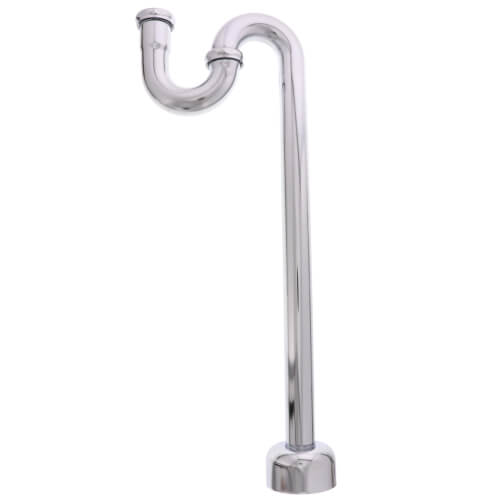
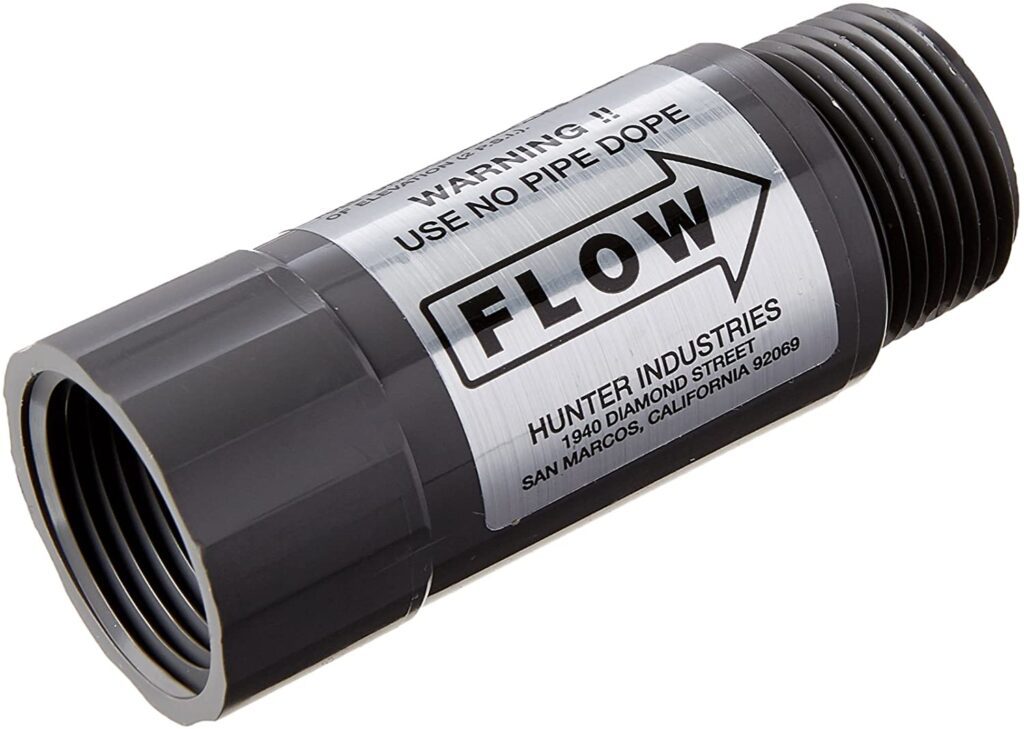
An inlet drain valve, like this one, helps you avoid damage to the rest of your system. Without this piece, water may get stuck in your pipes.
Your Main Shut off valve may be a gate or ball valve. This photo is of a ball valve. It will be at the end of your system, and is used to cut the water from your sprinklers.
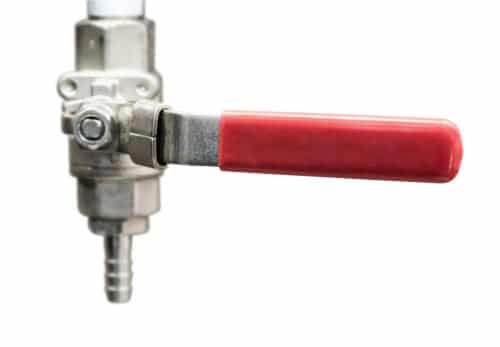
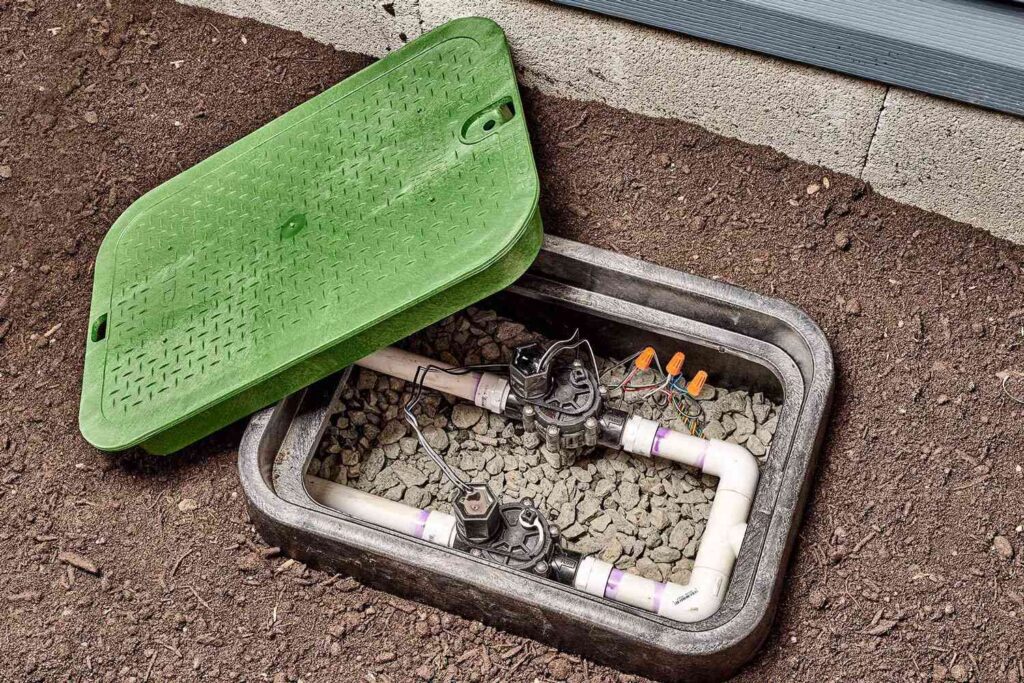
In Manual Drains, this valve pit needs to be open to ensure gravity can allow the system to drain properly.